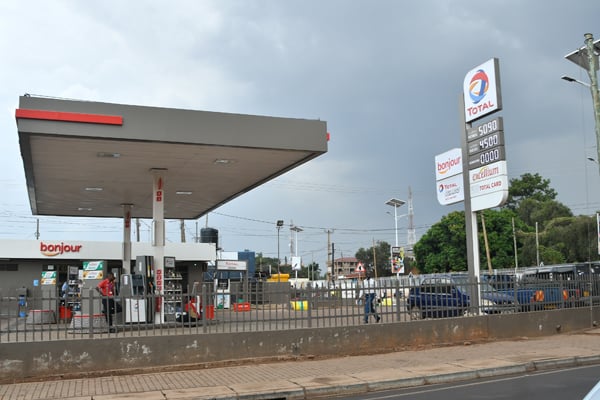Prime
Kenya agrees to Uganda’s fuel demands

Uganda has been experiencing volatility in fuel supply since November last year. PHOTO | file
What you need to know:
Uganda has been facing rapid increases in fuel prices, which, according to Ubos, had by April increased by 30.3 percent. Uganda wants Kenya to increase in supply quotas.
Energy State Minister Sidronious Okaasai has said Kenya has agreed to demands Uganda had made last month, among which include increase in imported petroleum quotas and ensuring the security of fuel products destined for Uganda.
The revelation comes on the back of a meeting in Nairobi, Kenya on May 17 in which a delegation led by Mr Okaasai, together with Ms Irene Bateebe, the Energy Ministry permanent secretary and Rev John Tukwasiibwe, the commissioner, petroleum supply, discussed concerns with Kenya’s Energy Cabinet Secretary Monica Juma and other officials that Uganda is particularly seeking to find solutions, amid a fuel crisis.
In a phone discussion yesterday, Mr Okaasai, who declined to get into details of the discussion before sending a formal report to Mr Museveni, said the President had deployed them to discuss the security of petroleum supplies from Kenya, noting that they were compiling a report that is expected to be discussed at Cabinet level.
“The population should not be scared that we are going to have a fuel shortage in the country. We discussed in good faith and agreed to ensure the security of the supply of petroleum products,” he said without going into details.
In an April 11 letter, Ms Batebe had asked Kenya Energy Principal Secretary Andrew Kamau, to increase fixed allocation of 110,660 cubic metres of petrol and 110,400 cubic metres of diesel transported through Kenya to satisfy fresh demand, partly driven by reopening of the economy.
In addition, the letter noted, Kenya should guarantee a monthly provision of 12,000 cubic metres of aviation fuel.
The demand had come following a meeting with oil marketers operating in Uganda, who had linked the fuel supply crisis facing the country to inadequate allocations from Kenya.
“During the time we experienced Covid-19 restrictions in 2020 and beginning of 2021, there was a reduction in demand for petroleum products and when businesses returned to normal in the fourth quarter of 2021, Ugandan oil marketing companies have continued experiencing inadequate ullage which has caused gaps in fulfilling demand and therefore resulted in supply problems in Uganda,” she wrote last month.
Fuel prices have since November experienced a lot of volatility, closing yesterday by an average of Shs5,500 for petrol and Shs5,540 for diesel.
It is the first time in a decades that prices of diesel have surpassed petrol, which in October was selling for an average of Shs4,400. According to data from Uganda Bureau of Statistics, fuel prices had by last month increased by an average of 30.3 percent.
On Wednesday, Kenya’s Energy Cabinet Secretary Monica Juma, was quoted by Business Daily saying Kenya was committed, as the gateway, to service fuel needs of the region, particularly Uganda, noting that the meeting had discussed ways of enhancing cooperation through joint and complementary projects that accelerate regional integration.
Uganda is a net importer of fuel, with much of its petroleum products transported through Kenya, before they are driven by road to storage deports across the country.
Kenya is itself struggling with rising fuel prices, some of which has been blamed on hoarding and global movements.
Kenya’s oil marketers traditionally allocate 65 percent of their fuel imports to the local market and 35 percent to the transit market.
Demands to Kenya
In an April Uganda asked Kenya to increase fixed allocation of 110,660 cubic metres of petrol and 110,400 cubic metres of diesel to deal fresh demand, amid rising pump prices.
Fuel prices, according to data from Uganda Bureau of Statistics, fuel prices had by last month increased by an average of 30.3 percent.




